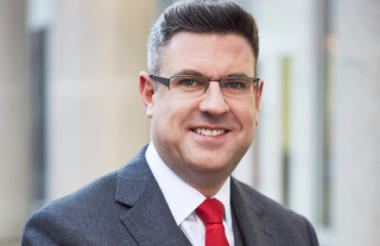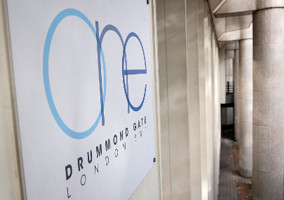The Charity Commission has decided not to ask charities if they are claiming rate relief and Gift Aid in the 2018 iteration of the annual return, and amended a question relating to overseas funding sources, but sector bodies have said the changes do not go far enough.
Bond, NCVO and the Directory of Social Change have all been critical of the Commission’s decision to ask charities to reveal their overseas funding sources in their annual return, because of the burden it places on charities and the message it sends to other countries.
The regulator said that for the first year only income from overseas governments, quasi-governmental bodies, charities or NGOs will need to be declared, but in future years all overseas income from other institutions or donors will also need to be declared.
Charity bodies had raised concerns that the 2018 format would be too burdensome, and were particularly concerned about the question relating to sources of funding from overseas.
The announcement that the Commission would begin collecting data about overseas funding sources was first made by the Home Secretary last summer as part of anti-terrorism and extremism measures.
Concerns about the policy were raised immediately by the Charity Finance Group and the Commission later clarified that the question would not be introduced in 2017 but in 2018 to allow for consultation.
In its consultation response document the Commission said: “It is important that we have a better understanding of the income sources of the charity sector, including a more complete picture of the flow of funding into and out of the UK, and the provenance and volume of donations and income from outside the UK.”
It added that this information would allow the regulator to assess risks to individual charities and to the broader sector so it can provide targeted advice and guidance.
“The Commission is not suggesting income received from outside the UK or from certain countries is necessarily tainted, wrong or unsafe, but for some sources there are greater risks that need to be managed,” it said.
‘Minor concessions’
But Bond, an umbrella body for international agency charities, said that the regulator had only made “minor concessions” and that the requirement to report overseas income would still prove unduly burdensome for small charities.
Michael Wright, director of membership and communications, said: “Some of the proposed changes will help alleviate reporting pressures to a small degree.
“However, the revisions do not go far enough and will still prove unnecessarily burdensome, particularly for small NGOs who have less capacity to record this level of detail around donations.”
He also warned that the policy might make it more difficult to hold restrictive foreign governments to account.
“These new measures will also make it harder for the UK to hold other governments to account, particularly those using similar funding information as a means to restrict civic freedoms by unfairly discrediting NGOs championing democracy and human rights,” he said.
“We urge the Charity Commission to reconsider before the new annual return is rolled out.”
Douglas Dowell, senior policy officer at NCVO, said his organisation was also concerned.
“We’re pleased that they have reduced the burden,” he said, "but we still think it is a pretty damaging message to send."
Jay Kennedy, director of policy at the Directory of Social Change, said he was concerned about “the feasibility of tracking all overseas income in future years.
"t may not be workable or yield very useful data,” he said.
Fewer questions
The regulator said that on average charities will need to answer 15 fewer questions than in the past and is intended to be easier for charities to use.
As well as the consultation the Commission carried out targeted user testing and said it received “largely positive feedback” from these sessions.
It is currently developing the digital service to underpin the 2018 annual return and hopes to make this available within four months.
The regulator has decided not to ask questions claiming rate relief and Gift Aid and is exploring other ways of obtaining this information.
New questions on executive pay will be included in the 2018 annual return. Charities will be asked for details of salary, bonuses, pensions and benefits in kind and will publish how many individuals receive total packages worth upwards of £60,000 in bands (in bands of £10,000 up to £150,000, then in bands of £50,000).
It will also ask for details about the highest paid employee, but will not make this public.
David Holdsworth, deputy chief executive and registrar at the Charity Commission, said: “The annual return is a vital tool in promoting charities’ accountability to the public, donors and beneficiaries as well as ensuring we have the information we need to be an effective, proportionate, risk-led regulator.
“I am grateful to the charities that took part in our extensive consultation on the content of AR18. Today’s report shows that we have listened carefully to charities’ submissions and have made important changes as a result.
“However, in some important areas, including around executive pay, we will require charities to provide us with more detailed information. We know the public care deeply about transparency in this area, and it is vital that charities, and the Commission as regulator, respond constructively to these expectations. I am confident our decision in this area strikes the right balance between transparency, and protecting the personal data of individual staff members in charities.”
Kennedy from DSC said that that “how any additional information on pay is presented and used will be crucial. Without context the raw data won’t inform the public – and it could actually misinform or drive simplistic narratives about percentages to the end cause”.
He added that: “The proof of the AR2018 pudding will be in the eating. Many of DSC’s points were about the need for definitions, guidance, accessible help and advice, and being clear about what you are asking for so you get the data you want. They still need to get this right.”
Dowell said NCVO was also pleased that the Commission had listened and dropped questions on Gift Aid and rate relief and that it had “made it clearer what it was asking for” in terms of executive pay.
“We would like charities to have more chance to explain what they have decided about pay and why,” he said. NCVO produced guidance on executive pay transparency following an inquiry in 2014 which it is still encouraging charities to follow.
Related articles












